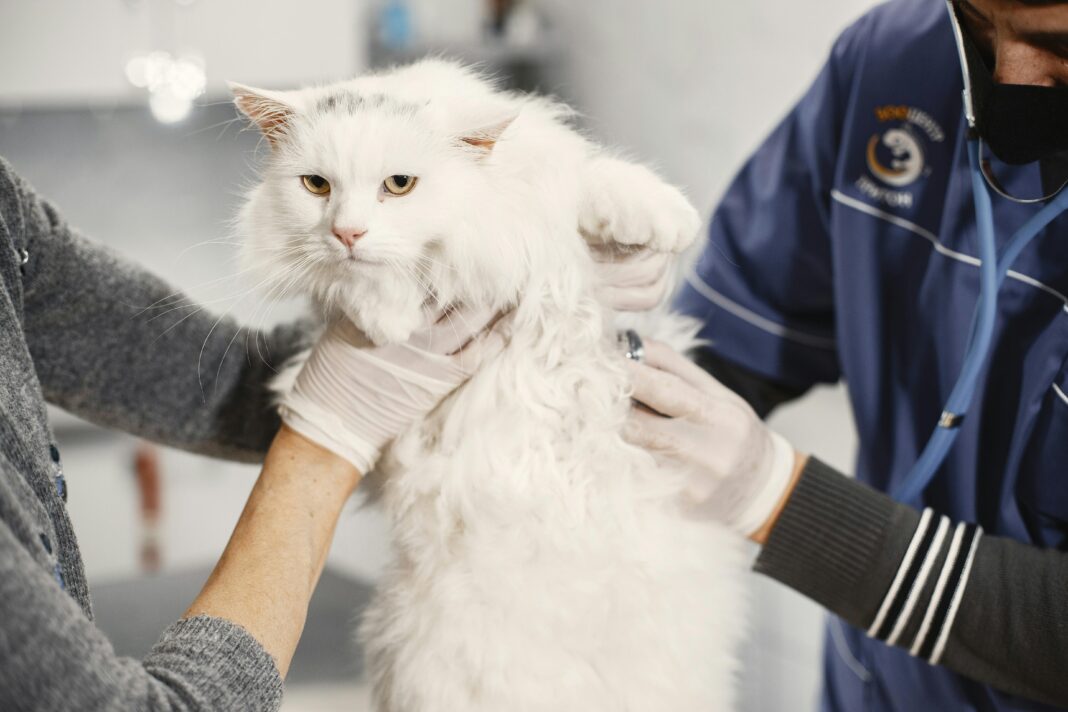When it comes to our furry friends, skin health is often overlooked. Just like humans, pets can suffer from various skin conditions that not only affect their appearance but also their overall health and well-being. Veterinary dermatology specializes in diagnosing and treating skin disorders in animals, helping to keep your pet healthy and comfortable. This guide is designed to give you an in-depth understanding of pet skin care, including causes, symptoms, diagnosis, treatment, and prevention.
Common Causes of Skin Issues in Pets
Many factors can contribute to skin problems in pets. Some of the most prevalent causes include:
Allergies
Pets can be sensitive to various allergens, including:
-
- Food allergies: Common ingredients like chicken, beef, or grains can trigger reactions.
-
- Environmental allergens: Pollen, dust mites, and mold can lead to allergic reactions, especially during certain seasons.
Parasites
Fleas, ticks, and mites are notorious for causing itchy skin and can lead to more serious skin infections if not treated promptly.
Infections
Bacterial and fungal infections can develop on pet skin, especially when there’s an underlying issue like allergies or poor hygiene.
Hormonal Imbalance
Conditions such as hypothyroidism or Cushing’s disease can affect skin health, leading to symptoms like hair loss or changes in skin texture.
Recognizing Symptoms
As a pet owner, it’s vital to pay close attention to your pet’s skin and behavior. Common symptoms of skin issues include:
-
- Itching and Scratching: Excessive scratching, biting, or licking are often signs of discomfort.
-
- Redness and Inflammation: Look for areas of redness or irritation on your pet’s skin.
-
- Scabs and Hot Spots: These can develop from continuous scratching or biting, leading to more severe infections.
-
- Hair Loss: Patchy hair loss or significant thinning can indicate a deeper issue.
-
- Odors: Unpleasant smells from your pet’s skin or ears may indicate an infection.
Diagnosis: How Veterinarians Determine Skin Issues
If your pet is displaying any of these symptoms, seeking veterinary care is essential. Here’s how dermatologists typically diagnose skin issues:
Physical Examination
A thorough examination of your pet’s skin, fur, and overall health is the first step. The vet will look for any visible signs of irritation, infection, or parasites.
Allergy Testing
If allergies are suspected, your vet may recommend allergy testing. This can include skin tests or blood tests to determine specific allergens affecting your pet.
Skin Scraping and Cultures
For deeper diagnoses, skin scrapes might be performed to check for parasites or fungal infections, while cultures can identify specific bacteria or fungi.
Blood Tests
Blood tests can help assess hormonal levels and sometimes rule out other systemic conditions impacting your pet’s skin health.
Treatment Options for Skin Disorders
Once diagnosed, your veterinarian will recommend a tailored treatment plan based on the underlying cause of the skin issue. Treatment options can include:
Medications
-
- Antihistamines: These can help relieve itching caused by allergies.
-
- Steroids: Used to control inflammation and severe itching but should be used cautiously to avoid side effects.
-
- Antibiotics or Antifungals: Prescribed if there’s a bacterial or fungal infection.
Topical Treatments
-
- Medicated Shampoos: Help soothe irritated skin and can address various conditions.
-
- Ointments and Creams: Applied directly to affected areas for targeted treatment.
Dietary Changes
If food allergies are discovered, switching to a hypoallergenic diet can significantly improve skin health.
Parasite Control
Effective flea and tick prevention is crucial. Discuss the best products for your pet with your veterinarian.
Preventing Skin Issues in Pets
While not all skin issues can be prevented, certain measures can significantly reduce the risk:
Regular Grooming
Regular brushing helps remove dead hair and skin cells, preventing matting and irritation. Bathing with appropriate shampoos can also keep skin clean and healthy.
Balanced Diet
Ensure your pet is eating a well-balanced diet rich in essential fatty acids, vitamins, and minerals to support skin health.
Environmental Control
Minimize exposure to allergens by keeping your pet’s living area clean and avoiding outdoor exposure during high pollen counts.
Routine Veterinary Check-Ups
Regular vet appointments allow for early detection and management of skin issues. Stay proactive about your pet’s health!
By understanding veterinary dermatology and being attuned to your pet’s skin health, you can enhance their quality of life and ensure they remain happy and healthy. Always consult your veterinarian for personalized advice and treatment options tailored to your pet’s specific needs.





